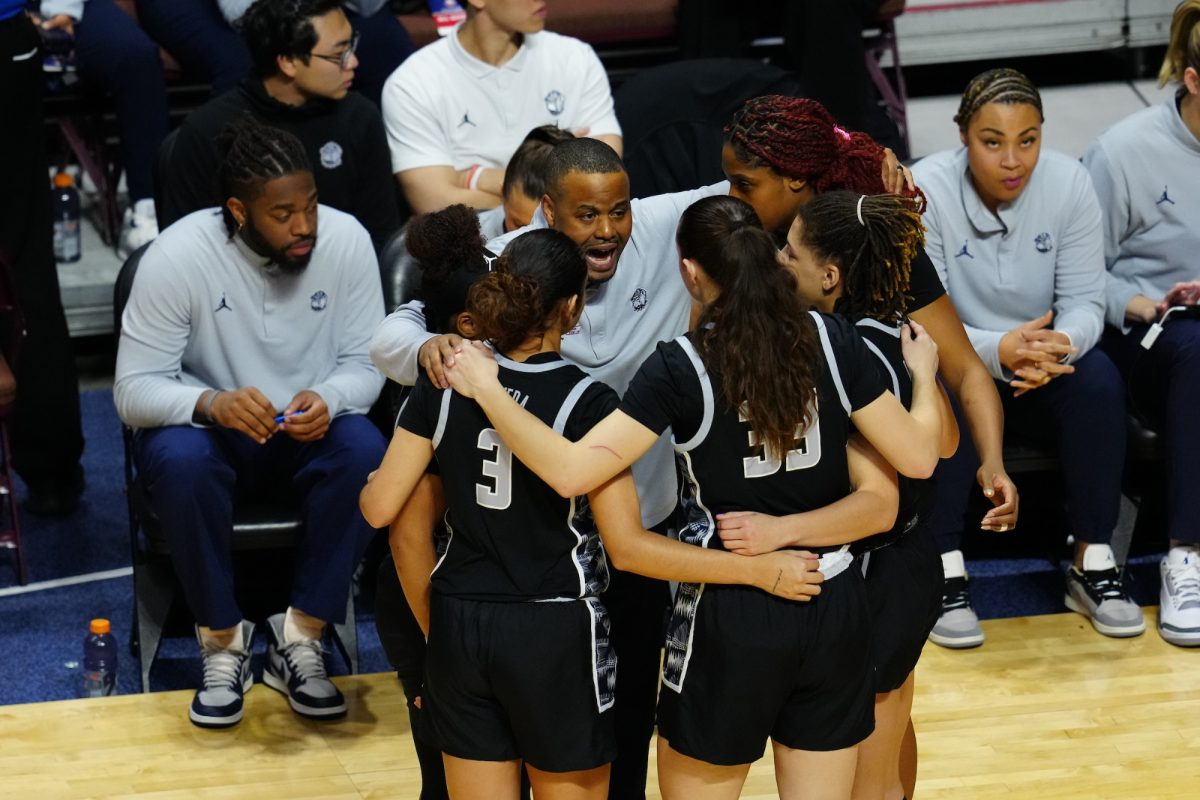How much would I, another person or a university have to pay you to be humiliated and dragged around a football field for three hours? Be honest; everyone has a price.
The Bowl Championship Series was a system that used a computer to rank college football teams. Using these rankings, football programs were assigned to one of 39 bowl games. Elite programs would frequently play much smaller and weaker programs to boost their statistics and ensure an easy win, while the small teams would receive a large check in return for the near-certain drubbing. This season, the top four teams chosen by a 13-member selection committee will take part in a playoff system. The new system projects to place a greater emphasis on strength of schedule.
For schools like Murray State, Florida A&M and Georgia State, the price to play elite schools ranges from about $450,000 to $600,000. Back in 2012, Western Kentucky University was lucky: it got $1 million from Alabama and only lost 35-0. Unfortunately, these early-season lopsided games persist and even though the occasional upset occurs, it is time for these games to end.
For decades, there was no incentive to stop these uneven games from occurring, even though they are a waste of fans’ time and money. In many ways this scheduling strategy was encouraged because on-field performance was the primary factor in both human and computer polling. Therefore, teams could look good running up the score without risking a loss of credibility.
However, with the introduction of the new college football playoff system, the incentives have changed. Non-computerized polls like those from the Associated Press or USA Today, which formerly played a role in BCS bowl allocation, no longer have influence on who is chosen for the four-team playoff. The strength of schedule criteria will now have a larger role for the 13-member playoff selection committee.
The playoff system will incentivize top-tier teams and legitimate contenders to play other football powers and reinforce the idea that if you want to be considered the best, you have to play and beat the best. The allure of playing a small-time opponent for a home opener is clear; beating a team handily in front of thousands of yelling fans is a great way to start the season.
The new system has not prevented some teams from continuing to schedule easy opponents. No. 19 Arizona State’s matchup against FCS school Weber State, No. 9 Texas A&M’s game against Lamar and No. 10 Baylor’s date with tiny Northwestern State led to a combined score of 188-23 in favor of the ranked hosts. Despite these blowouts, the playoff system already seems to be yielding some results.
Independent powerhouse Notre Dame has just arranged home-and-home matches with SEC power Georgia, Big 12 magnet Texas and Big 10 power Ohio State.
Major conferences are also talking about changes that would see more top-level play. Earlier in the year, SEC commissioner Mike Slive told ESPN that the ACC and SEC were in talks to have schools from their conferences play one another beginning in 2016. If both of these conferences were to adopt nine-game conference schedules—as all of the other major conferences do— and play a non conference game against another elite team, the soft scheduling problem could be essentially eliminated. If there were a game or two left over, rivalries that cross conference boundaries, such as Georgia-Georgia Tech or Nebraska-Oklahoma, could resume as they were essentially killed by realignment of the major conferences.
The final benefit of the increase in scheduling difficulty is that it reduces the likelihood for extreme controversies and what-ifs that have plagued the BCS era. One such case came in the 2010-11 season, when Oregon, Auburn and Texas Christian University all went undefeated, but only the Ducks and Tigers, who belonged to larger conferences than TCU’s Mountain West, were selected to compete for the national championship.
The 13 members of the committee will have more accurate and relevant information from which to make their decisions, and with no easy scheduling the odds of having more than four undefeated teams would almost be next to zero.
Schools also have an economic incentive to make these changes. Ratings would be better for more top-tier games, and higher ratings mean more advertising revenue for networks and colleges. Time Magazine cited research that students buy fewer tickets for non-challenging games, and fans are less likely to tune in for what they expect will be a non-contest.
In fact, The Wall Street Journal estimates that student attendance is down 7.1 percent since 2009 in part because of these early season blowouts and to prohibitively high-ticket prices. Conferences and schools are beginning to address the problem, but at their core, fans don’t want to see video game statistics; they want quality games against quality opponents. This is a change that competitors for the national championship should take to heart. We owe this change to the new playoff system.
Michael Ippolito is a sophomore in the College. The Water Cooler appears every Tuesday.




















